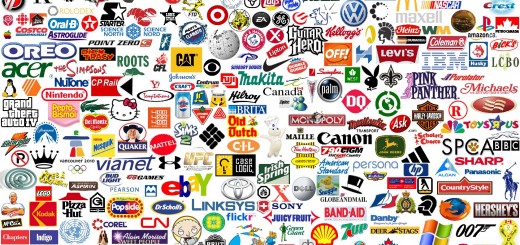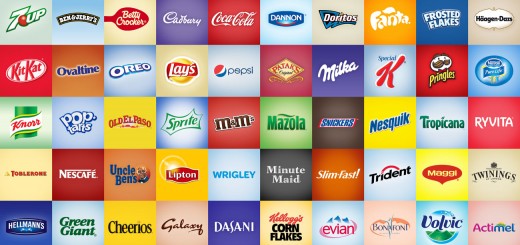Glow Merges with ADTZ; Inneractive Snapped Up by RNTS
ExchangeWire rounds up some of the biggest stories in the European digital advertising space. In this week’s edition: London-based Glow merges with Spanish ADTZ; RNTS buys Inneractive; EU releases more details on ‘Privacy Shield’; UK cultural secretary slams ad blocking; Facebook faces German anti-trust proceedings; Walczak joins Light Reaction; and Springer posts digital growth.
Glow acquired by ADTZ
London-based Glow has been acquired by ADTZ. The Spanish social media advertiser and the digital media firm are refirming as Adglow and are, thus, creating one of the largest social ad tech and services companies in Europe and Latin America.
Backed by funds, such as Onza Venture and White Star Capital, the new entity is looking to scale its operations internationally, helped by the network of offices from Barcelona and London, to Bogota, Hong Kong and New York, among other locations.
Says Damian Routley, CEO, Glow: “We could see that scale was an increasingly essential component of delivering value to our customers. Therefore, we sought out a complementary business with whom to partner. The combination of these two businesses creates a powerhouse in social advertising technology and services that I’m very excited to bring to market.”
While terms of the acquisitions were not disclosed, the merger is significant in that it creates the largest Facebook and Twitter partner headquartered outside of the US.
RNTS pays USD$72m for Inneractive
Fyber’s parent company, RNTS, continues its ad tech shopping spree and snaps up Israel-based ad exchange Inneractive.
With the transaction, RNTS is consolidating its ad tech offerings: According to the company, Inneractive’s user reach of 630 million MAUs will add to Fyber’s more than 500 million MAUs, making the combined entity one of the largest, independent mobile SSPs in the world.
Thanks to the acquisition, RNTS will be able to expand beyond Fyber’s core publisher base into key verticals, such as entertainment, productivity, news, messaging, social networking, and utilities, as well as increase the number of buyers and sellers on their platforms.
“This is another milestone for RNTS on our path to building the leading supply-side platform for the mobile app economy. By playing an active role in industry consolidation, we intend to secure a lasting competitive edge”, said Andreas Bodczek, CEO, RNTS Media. “Following on from our acquisitions of Falk Realtime and Heyzap, Inneractive delivers significant additional scale and programmatic capabilities to enable our publishers to generate revenue even more effectively, and our advertising partners to access a substantially broader audience across important digital verticals. Having now delivered on our commitment of two important acquisitions following the convertible bonds, we are confident that the revenue run-rate for the enlarged group by year-end 2016 will surpass €200m (£155m).”
The RT-based ad exchange is sold for a total of USD$72m (£51.5m), made up from USD$46m (£32.9m) in cash and a further USD$26 (£18.6m) in potential earn-out and retention payments.
Inneractive is based in Tel Aviv, with offices New York, San Francisco, and London, and will remain largely independent within the RNTS organisation. The acquisition is expected to be completed in Q2 of 2016. Ziv Elul, CEO of Inneractive, will join the RNTS Executive Board upon completion of the transaction.
Further details on EU-US ‘Privacy Shield’
After further deliberations and negotiations between the relevant EU and US authorities, the EU Commission has released new details about the Privacy Shield agreement. The transatlantic data-transfer agreement creates a framework for the collecting and managing of user data by technology companies, and for the movement of data from Europe to the US.
The so-called ‘draft adequacy decision’ includes written commitments by the US Government on the enforcement of the arrangement, as well as the principles by which companies have to abide.
Specifically, Privacy Shield promises strong obligations from companies and robust enforcement with penalties in the shape of sanctions or exclusion when not complying. The US government has agreed to clear safeguards and transparency obligations when requesting access to European citizens’ data; while both US and EU representatives have committed to an annual joint review mechanism to ensure the functioning of Privacy Shield. In order to effectively protect EU citizens’ rights, several redress possibilities have been written into the agreement, including the assurance that complaints have to be resolved within 45 days.
Privacy advocators have criticised the Privacy Shield as not extensive enough, basically dressing up the same old rules in new clothes. The agreement has not been ratified by the EU member states yet.
The EU Commission had announced the new data-transfer deal in February 2016.
Whittingdale speaks out on ad blocking
UK Secretary of State for Culture, Media and Sport, John Whittingdale, has slammed ad blocking as a “modern-day protection racket”.
Whittingdale made his comments in a speech at the Oxford Media Convention, jumping to the defence of publishers who monetise their digital content by displaying ads.
“If people don’t pay in some way for content, then that content will eventually no longer exist”, the culture secretary said.
He recognised ad blockers as an existential threat to the media and music industry and was particularly critical of the practice of ‘whitelisting’; whereby companies can pay the developers of ad blocking software in order to be excluded from their blocking lists.
“This practice is depriving many websites and platforms of legitimate revenue. It is having an impact across the value chain, and it presents a challenge that has to be overcome.”
“Ad blocking is clearly one of the media industry’s major debates at the moment and, like our peers, we are cautious about how it could have an impact in the future, so are continually monitoring how our consumers respond to our content and advertising”, reacts Will Hattam, CMO at the media group Archant, to Whittingdale’s comments.
As a next step, the cultural secretary is planning to set up a round-table with publishers and ad block providers.
German antitrust authorities versus Facebook
The German Federal Cartel Authority is examining whether Facebook may have been abusing their position as market leader. Proceedings have been initiated against Facebook’s US headquarters, as well as the Irish-based European subsidiary, and the German Facebook GmbH, based in Hamburg.
The antitrust authority is investigating whether the social media giant’s usage rules countermine data protection rules on the back of its dominating market position.
Andreas Mundt, president of the Federal Cartel Authority, says: “Dominant companies are subject to special obligations. These include the use of adequate terms of service, as far as these are relevant to the market. For advertising-financed internet services, such as Facebook, user data is hugely important. For this reason, it is essential to also examine, under the aspect of abuse of market power, whether the consumers are sufficiently informed about the type and extent of data collected.”
The antitrust authority criticises Facebook’s lack of transparency when it comes to data collection: Facebook’s user profiles enable its advertising customers to better target users with their advertising activities. In order to access the social network, users must first agree to the company’s collection and use of their data by accepting the terms of service. But, the cartel authority argues, it is difficult for users to understand and assess the scope of the agreement accepted by them.
If found guilty, Facebook could face a fine of up to 10% of its European revenue, or USD$140m (£100m), based on last year’s revenue figures.
Light Reaction appoints Bob Walczak
Light Reaction announces a new CEO. Bob Walczak joins the mobile arm of Xaxis, replacing Paul Dolan as CEO. For the time being, Dolan will continue to be on hand in an advisory role.
With Walczak at the helm, Light Reaction will continue to scale and develop its technologies, bolster its international expansion beyond the 26 markets in which it is active, as well as expand their portfolio of clients beyond their, currently, more than 400 clients.
“Bob’s mobile experience encompasses everything from the pre-smartphone era to the present day, with a great resume in developing and launching breakthrough mobile platforms for global advertisers,” Brian Gleason, CEO, Xaxis, praised the industry veteran.
Previously, Walczak served as general manager for BidSwitch. Before that he acted as VP product at PubMatic.
Digital growth for Axel Springer
Digital is becoming ever more important for German media giant Axel Springer. In its current annual report, the publisher announced a 10% increase in earnings for 2015. 62% of Springer’s revenue came from digital operations.
Springer’s earnings reveal further interesting details: In 2015, Springer’s total revenue increased to €3.3bn (£2.6m), representing an 8.5% growth year-on-year. Before taxes, Springer’s earnings amount to €559m (£433m) in 2015; again, a growth of 10.2%.
The numbers become significant when put into context with Springer’s subscription figures: the company says its number of digital subscriptions to their tabloid Bild and broadsheet Welt increased by 26% in 2015.
As a reminder: last year, Springer decided to counter the increasing use of ad blockers by forcing readers of the digital edition of Bild to choose between disabling their ad block software for free access, or buy a digital subscription for ad-free reading.
The company said it will continue to concentrate on digital subscriptions and invest in the accelerated expansion of its digital business models.
The post Glow Merges with ADTZ; Inneractive Snapped Up by RNTS appeared first on ExchangeWire.com.



